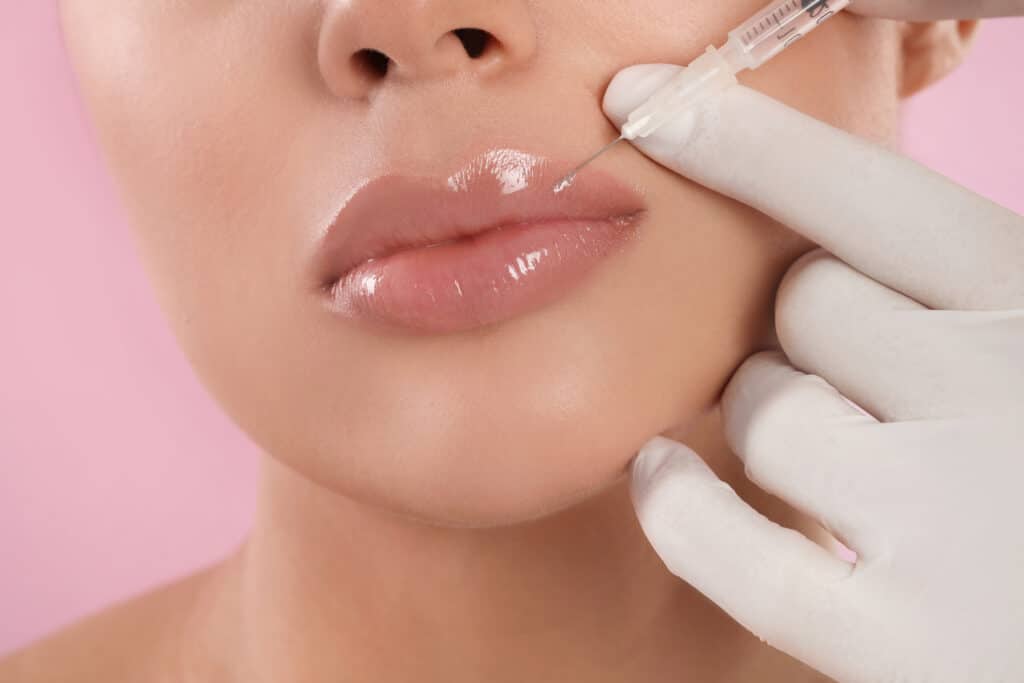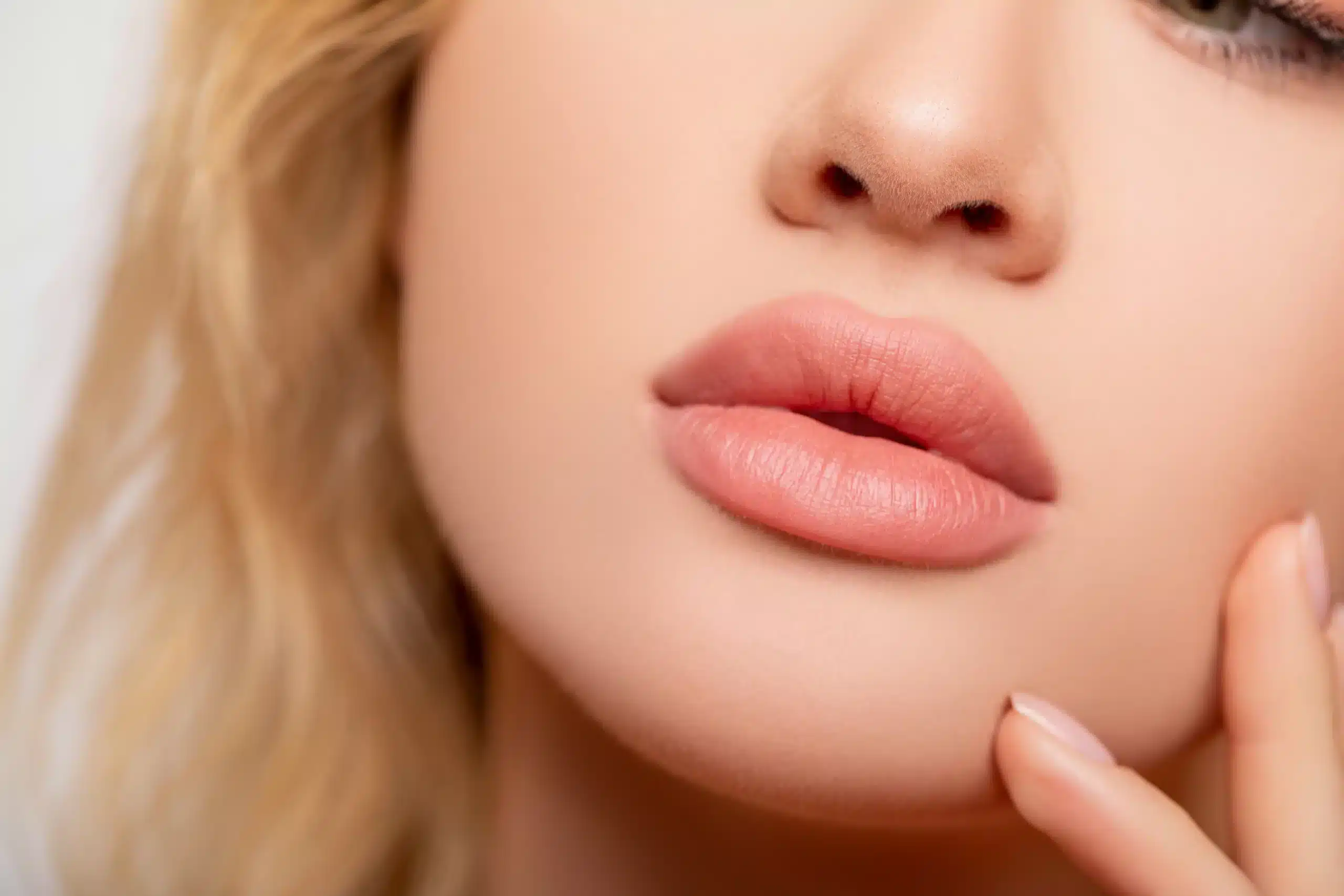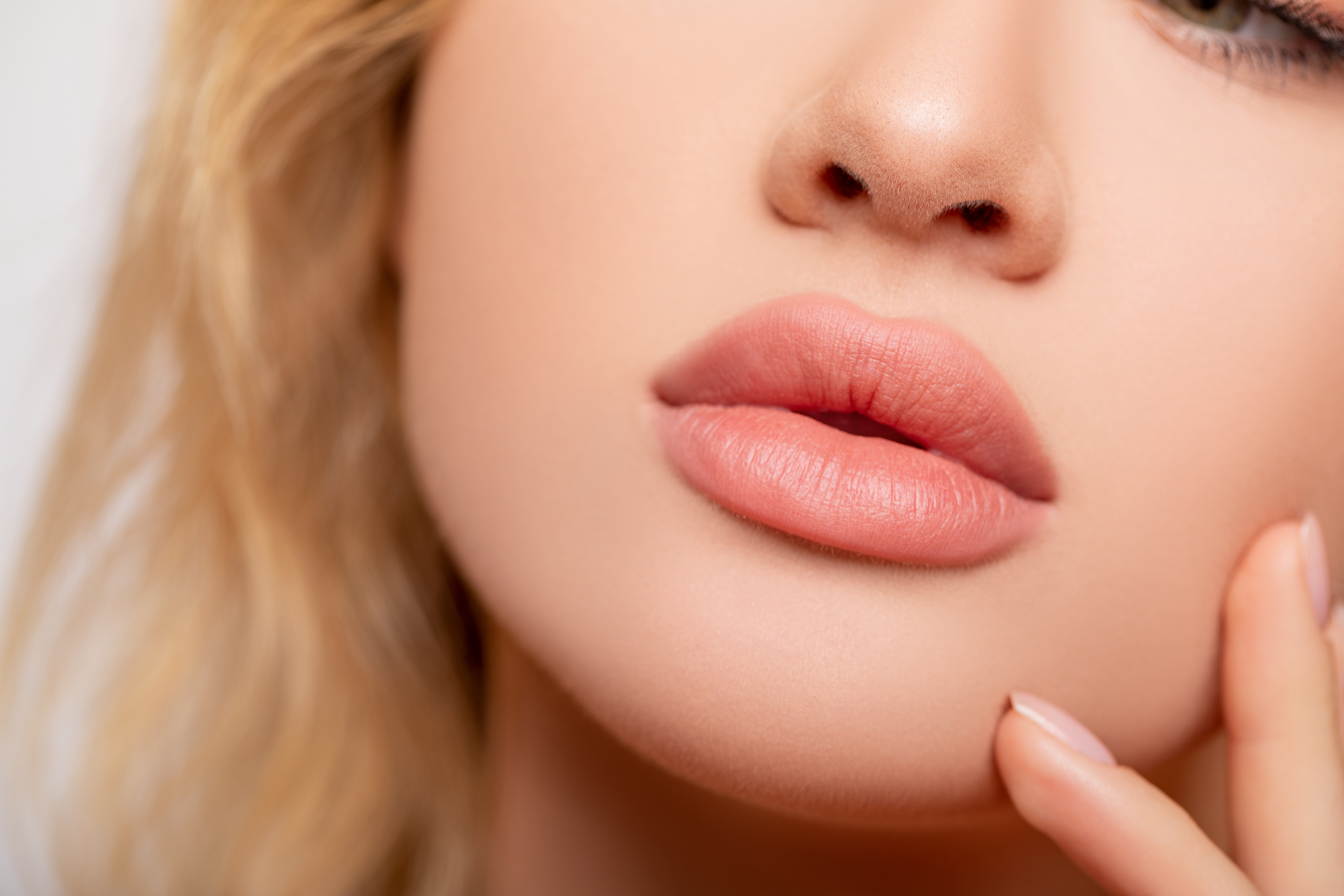


Have you ever wondered why humans have pink lips, but the rest of our face or body parts do not appear pink? Unlike the rest of our face, our lips are covered with thin and delicate skin that are only 3 to 5 layers deep. That thin skin acts like a window to the blood vessels that lie below them, giving lips a pink appearance. Individuals who have more melanin in their skin, meaning genetically they have tanner skin, may have darker lips because that melanin also exists in the skin that covers our lips.
The skin over our face can be covered with up to 16 layers, and even the thin skin of our eyelids that are prone to wrinkles and damage if you excessively rub them, have up to 7 layers of skin. It is no wonder that compared to the rest of our face, our lips are so prone to being dry, being sensitive to the substances that you put on them, and bleed so easily. This also means that the skin around our lips are more vulnerable to the effects of sun exposure and pollution, ageing and drying.
And while the ‘golden ratio’ of the ideal lip shape exists – a ratio of 1:1.6.1 for the upper lip to lower lip – that claims its shape for being the most ‘youthful looking’ lips, a pink lip colour is also one of the hallmarks of a youthful appearance! Aside from wearing makeup or utilising lip fillers in Singapore to produce a more pronounced Cupid’s bow, upturned mouth corners, or a full centre lip with slightlliy thicker bottom lip protrusion, how can we maintain a naturally pink lip colour that looks healthy? Are there any foods to eat for pink lips? Read on to find out!

Being more sensitive to lifestyle and environmental changes also means that we may notice that our pink lips have a tendency to change in colour over time. However, are pink lips really considered a baseline standard of ‘health’? The answer is both yes, and no.
Scientifically, pink lips have been biologically and subconsciously perceived as healthy by humans throughout the years as it is linked to our survival as a species. Pink or reddish lips are considered attractive in women because they are attributed to its association with increased oxygenated blood perfusion (the amount of oxygen that flows in our blood at any given time) which indicates greater estrogen levels, sexual arousal, and also cardiac and respiratory health. All of these help the survival of the species and we are biologically programmed to associate pink lips as healthy!
One study that manipulated the colour of lips in photographs found that participants naturally gravitated to pictures that had a greater amount of red in the lips, no matter the gender. As a person ages, those age-related changes also happen to the lips and skin around the lips. As wrinkle visibility increases and the elastic and collagen fibres in the upper lip undergo degeneration, the lips tend to thin out and lose their plumpness. The lack of plumpness causes skin sagging and wrinkling, which do not allow the blood vessels to give lips their natural pink look; hence, lip health is affected as we age.
Also Read: Ways To Achieve Natural Pink Lips
Pink lips also indicate health in a different manner – the lack of pinkness can mean that a person is having a medical condition such as Addison’s disease where there is hyperpigmentation due to increased melanin production. It can also mean a person is on certain medication like anti-malarial drugs, which temporarily increase lip hyperpigmentation. Skin conditions like eczema or pigmented contact cheilitis can mean that a person is currently having skin issues due to an allergic reaction, or an autoimmune condition.
However, a person may also be healthy but not have pink lips! Natural melanin production in our body affects the colour of our lips. Lighter skin has less melanin, and darker skin has higher melanin levels. Oral melanin pigmentation has been reported among healthy individuals of varying intensities. The dark skinned African population has been found to commonly have lip melanin prevalence of 100%, and of 30% to 98% among Asians. This means that a healthy person may have darker lips, depending on their genetics and melanin production.
There are some food groups that can help to encourage pink lips:
1. Hydrating foods
Diet can play a huge role in obtaining and maintaining pink lips! Fruits and vegetables that contain plenty of water in them (like watermelon, tomatoes, and lettuce) can provide hydration to your body, as well as 7-8 glasses of water a day. This is important as dehydrated lips tend to chap more easily, a person may start to lick their lips more often to create a moisturised feeling. However, licking your lips too much actually causes your lips to become more dehydrated, and constantly dehydrated lips has increased chances of hyperpigmentation and darkening. Take care of your caffeine intake as well, since it is a diuretic and can dehydrate your lips.
2. Foods with plenty of antioxidants
Antioxidants help to regulate the concentration of reactive oxygen species (ROS) in the body. This is important as ROS is implicated in various diseases through oxidative stress and also in ageing. The regular amount of antioxidant defence can be overwhelmed by sustained inflammation in the body, and a body without enough antioxidants can hinder regular healing. Eating foods high in antioxidants like berries, kale, beetroot, and spinach help increase antioxidant levels, helping lips heal if they have any cuts and providing a healthy, pink glow. Interestingly, a higher intake of green and yellow vegetables was correlated with a slower rate of skin ageing in Asian women after adjustment for age, BMI, smoking status, and sun exposure!
There is a difference from knowing that we really should be taking care of our lips, and actually taking care of them. If you’re having difficulty with understanding why your lips are not as naturally pink as you’d like, contact us today to book a consultation!
Like what you read? Share them!